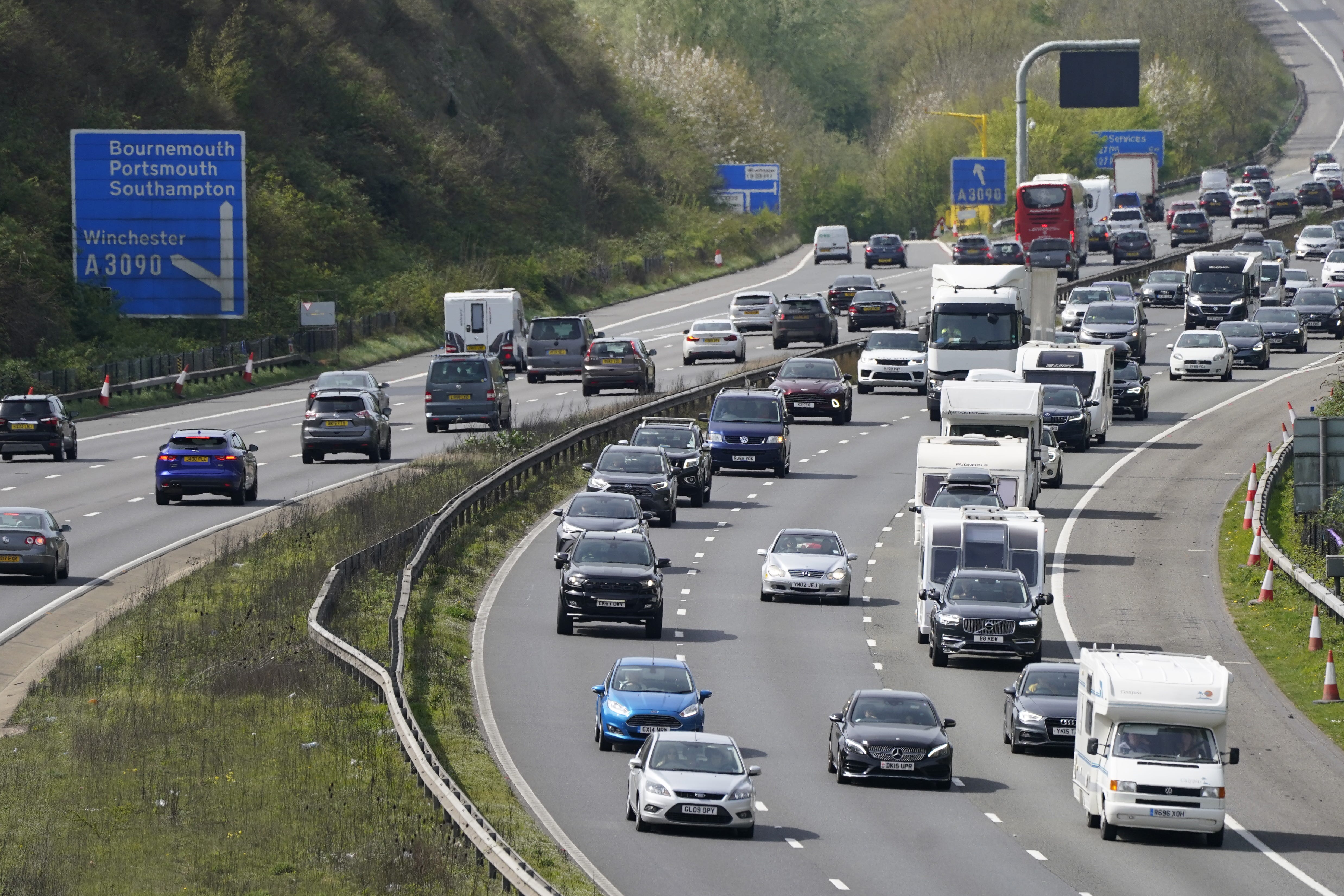All the new driving laws and costs coming to British roads in December - and what they mean for you
A raft of road rules and changes are due to come into effect this December

Your support helps us to tell the story
From reproductive rights to climate change to Big Tech, The Independent is on the ground when the story is developing. Whether it's investigating the financials of Elon Musk's pro-Trump PAC or producing our latest documentary, 'The A Word', which shines a light on the American women fighting for reproductive rights, we know how important it is to parse out the facts from the messaging.
At such a critical moment in US history, we need reporters on the ground. Your donation allows us to keep sending journalists to speak to both sides of the story.
The Independent is trusted by Americans across the entire political spectrum. And unlike many other quality news outlets, we choose not to lock Americans out of our reporting and analysis with paywalls. We believe quality journalism should be available to everyone, paid for by those who can afford it.
Your support makes all the difference.The government has brought in a raft of changes affecting British drivers, electric car owners and manufacturers starting this month.
With ambitious Net Zero targets to achieve, the distances people drive for work is being charged differently with stricter regulations coming into force for car companies.
Here’s everything you need to know.
Advisory Fuel Rates
From Sunday December 1, pence per mile rates for company cars will be changing as part of the final Advisory Fuel Rate (AFR).
The advisory fuel rates for petrol and diesel company cars have all fallen compared to the current rates,
These rates only apply to employees using a company car and should only be used to reimburse employees for business travel in their company cars and need employees to repay the cost of fuel used for private travel.
Hybrid vehicles are treated as either petrol or diesel cars, depending on their design.
From 1 December 2024
| Engine size | Petrol — rate per mile | LPG — rate per mile |
|---|---|---|
| 1400cc or less | 12 pence | 11 pence |
| 1401cc to 2000cc | 14 pence | 13 pence |
| Over 2000cc | 23 pence | 21 pence |
| Engine size | Diesel — rate per mile |
|---|---|
| 1600cc or less | 11 pence |
| 1601cc to 2000cc | 13 pence |
| Over 2000cc | 17 pence |
| Electric — rate per mile |
|---|
| 7 pence |
HGV rules
From December 31, a “full” smart tachograph 2 or “transitional” smart tachograph 2 must be installed in Heavy Goods Vehicles (HGVs) with an analogue or digital tachograph undertaking international journeys.
From February 21, HGVs must be equipped with new tachograph technology for all journey types. The DVSA stated: “On or after February 21, 2024, a ‘full’ smart tachograph 2 or ‘transitional’ smart tachograph 2 must be fitted into all newly registered in-scope vehicles regardless of journey types.”
£10,000 fines

All electric vehicle (EV) charge points of 8kW and above, and existing chargers of 50kW or above, must now offer contactless payments to consumers or face fines of up to £10,000.
As the number of public charge points in the UK surpassed 68,000 earlier this year, total non-compliance could result in billions of pounds in fines for the sector, the ESP group said.
EV owners will be given assurances from charge point operators that from December that guarantee their devices have a 99 per cent reliability rate and offer contactless payment.
Adam Hall, director of energy services at Drax Electric Vehicles, said: “These findings highlight both progress and opportunity. Councils are working hard to modernise their EV infrastructure, but barriers continue to exist.
“Bridging these gaps is essential to not only build confidence in the UK’s EV growing market but also help make the transition smoother for businesses and fleets who rely on a reliable public charging network.”
Zero Emissions Vehicle (ZEV) mandate
The ZEV mandate is a government policy that is in place to help transition the UK into battery electric vehicles (BEVs) by the end of the decade.
The current target for 2024 is for all major car manufacturers to sell 22 per cent of electric vehicles from its sales fleet.
From January 1, that will increase to 28 per cent and by 2030 it will be 80 per cent.
If the manufacturer doesn’t hit the target it will be fined £15,000 for every vehicle that it sells that does not comply with the mandate.
Britain’s transition to EVs has started to raise concerns in the car industry after analysis has shown the ZEV mandate has led to a total of £4 billion worth of discounts for EVs.
Join our commenting forum
Join thought-provoking conversations, follow other Independent readers and see their replies
Comments